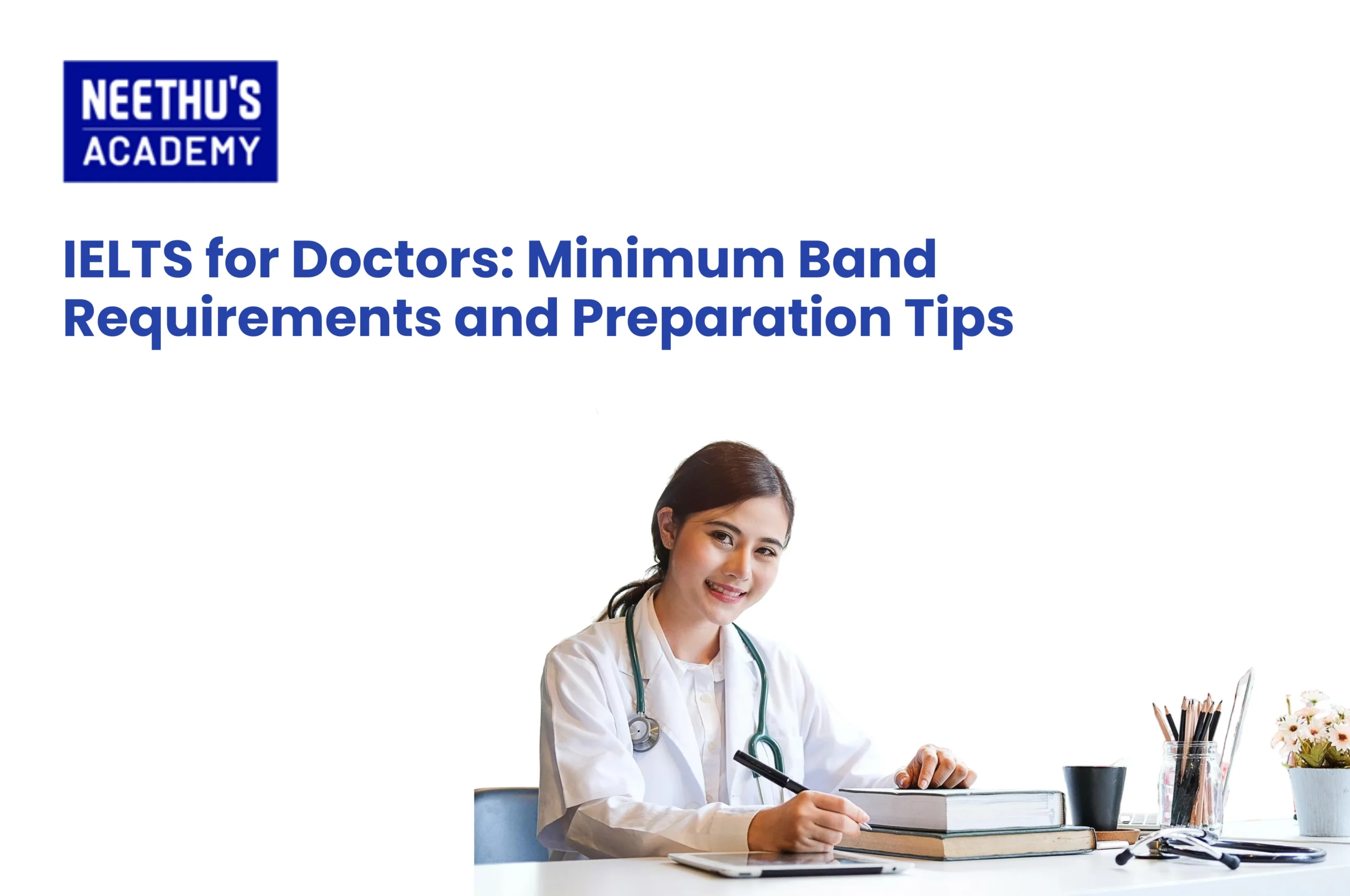Imagine you are running out of time and still have questions to complete! That would be the worst-case scenario while taking a…
Tips to Manage Exam Anxiety and Reduce Stress for Healthcare Students
Exams are the leading source of stress and anxiety among students. For health students, it is a big deal. It is made worse by the strict course schedule and the fact that, literally, lives depend on them getting things right. Though some level of stress can motivate you to study, too much anxiety over exams can have an adverse effect on your performance and mental health.
In this guide, we’ll explore how to recognize exam anxiety, why healthcare students are especially vulnerable, and practical tips to reduce stress and succeed.
Imagine having studied for weeks, by the time the exam sets in, your heart rages, your palms soak with sweat, and your head goes blank. These are standard signs of exam anxiety.
The good news is that you can control exam anxiety. The right strategies in the pocket will help you approach examinations with confidence, improve performance, and avoid risking mental health. Here’s a blog offering actionable tips on how healthcare students can turn their exam stress into a growth opportunity.
Exam Anxiety
It is the intense emotional and physical discomfort that one feels before or during exams. It is one type of performance anxiety that can possibly impair your clear thinking and effective performance.
Symptoms of Exam Anxiety
Physical: Sweating, palpitations, nausea, or headaches.
Emotional: presence of fear, hopelessness, or frustration.
Cognitive: Racing thoughts, forgetfulness, or poor concentration.
The best way to solve the problem would be by first acknowledging these symptoms.
Why Healthcare Students Are More Vulnerable to Exam Anxiety
Health student has hectic workloads, clinical rotations, and mastering life-saving skills. All these make the student vulnerable to exam anxiety.
Significant Stressors
High stakes: The exams decide eligibility for certifications and advanced training.
Balancing Act: Balancing coursework, practicals, and sometimes part-time jobs.
Emotional Load: The responsibility of future patient care adds to the pressure.
Common Causes of Exam Anxiety
Academic Pressure
Even a minor setback in the context of healthcare programs can become very monumental.
Dread of Failure
Many students fear that failure in an exam could be their career’s end.
Inadequate Preparation
A student may feel unprepared due to poor study methods and procrastination.
Mental and Physical Exhaustion
Long hours spent studying without proper rest build up to burnout, which fuels anxiety.
Tips for Managing Exam Stress
Preventing Exam Stress Through Proper Preparation
Break up your task lists
Divide your syllabus into easily manageable units and set small daily targets to avoid nightmarish cramming
Active learning
Teaching others or making flash cards or drawings improves retention.
Establish a timetable
Time out the day for each activity like studying, reviewing, or relaxing.
Mental Health Examination Tips
Deep, controlled breathing can help reduce your heart rate and concentrate better.
Practice: Try the 4-7-8 technique: inhale for 4 seconds, hold for 7, exhale for 8.
Exercise Often
Jogging or yoga releases endorphins, which are natural stress-reducers.
Sleep More
Sleep deprivation hampers memory and concentration. Aim for 7–8 hours of restful sleep.
Tips to Manage Exam Anxiety Before the Exam Day
Revising Effectively
Focus on high-yield topics and practice mock exams to familiarize yourself with the format.
Prepare Essentials
Pack your ID, stationery, and any necessary items the night before to reduce morning stress.
Visualize Success
Spend a few minutes imagining yourself calmly and confidently completing the exam.
Preparation Tips for Students
Simulate Exam Conditions
Practice under conditions that closely resemble the exams. Use a timer to mimic the time allocated for every section and avoid distractions when taking mock tests. It helps in better time management, boosts confidence, and points out areas that need improvement.
Use Peer Support
Study groups make study sessions more engaging and effective. One can either join or establish a group to share insight, clarify difficult topics, and test each other’s understanding. Group discussions usually reveal many different perspectives and ways of learning, so the preparation becomes more holistic. Isolation is reduced, and motivation while studying is boosted by studying with peers.
Practice Test Conditions
This would make the student practice the test under actual exam conditions and avoid exam-day nervousness. Mock tests should be done simulating the given time for each section without distraction from the external environment. This will help the student handle time well, build self-confidence, and identify areas of improvement to make sure everything is ready for the big day.
Exam Day Stress Management
Morning Routine
Wake Up Early
It leaves adequate time for getting ready without feeling rushed.
Have a balanced breakfast.
Select high-protein, high-complex carbohydrate foods that may yield more lasting energy – such as boiled eggs and whole-grain toast or oatmeal with nuts.
3. Mindfull Activity
Take 5–10 minutes to meditate or reflect on gratitude to get the day off to a positive start.
What to Do During the Exam
Begin with the Easy Questions
Early Momentum Will Give You Confidence
Pay Attention to Your Breathing
When you feel frustrated during the test, breathe slowly and deeply.
Manage Time
Plan your time for each section and adhere to it.
Strategies for Reducing Stress During an Examination
Healthy Habits
Develop a consistent study schedule
Do not cram, instead, review the material every week of the semester
Maintain a balanced lifestyle
Engage in hobbies, physical activity, and social activities to keep your mind healthy
Seeking Support
Speak with a Mentor
Clarification and Guidance
You may seek advice from a trusted professor or advisor on matters that worry you.
Support Groups
Interacting with others can make the feelings of loneliness dissipate.
Professional Counseling
When anxiety is persistent and begins to impact performance or daily functioning, consider seeing a mental health professional. Therapy methods, such as CBT, may be useful in learning effective ways to manage anxiety.
Tools and Resources to Assist in Handling Exam Anxiety
Apps and Tools
Calm or Insight Timer
Use for guided meditation to handle stress
Quizlet or Anki
Prepare digital flashcards that allow for interactive and more effective learning
Forest
The productiveness app will enable one to stay focused in studying sessions
Study Aids
Learning Websites
Platforms like Khan Academy or Medscape which provide resources for learning about healthcare topics
Mock Tests
Regularly sitting on past exam papers gives an individual more familiarity hence a reduction in anxiety levels.
Conclusion
The process of managing exam anxiety is not to eliminate the anxiety but rather to know how to effectively channel it. For the healthcare students who face some unique pressures of academics and professional demands, these can make a difference.
You can turn fear of exams into confidence by being prepared, prioritizing mental well-being, and seeking support when needed. All of this is just one small step toward becoming a fantastic healthcare professional.
Breathe in, breathe out—you got this!
Related Blogs
- All Posts
- OET
In case you are immigrating to Canada or looking for higher studies in the French-speaking parts of the nation, then the TCF…
Feeling a bit overwhelmed about the OSCE? You're not alone! The Objective Structured Clinical Examination is a big step in your medical…
Course Enquiry
Error: Contact form not found.
Latest Posts
- All Posts
- canada
- CBT
- DHA
- French
- GENERAL
- German
- Haad
- IELTS
- IQN NEW ZEALAND
- MOH
- NCLEX-RN
- NHRA
- OET
- OSCE
- Pearson Vue
- PROMETRIC
- PTE
- TOEFL
- Back
- NCLEX - NGN
- Back
- OET FOR PHYSIOTHERAPIST
- OET FOR PHARMACIST
- OET FOR DOCTORS



Frequently Asked Questions
Pay attention to deep breathing, start with easier questions, and remember that you are fairly well-prepared.
Reassure them, encouraging good study practice and use methods for relaxation: meditation or breathing exercises.
Eat a light, balanced meal, stay hydrated, practice calming exercises, and focus on positive affirmations to calm your nerves.
Listen empathetically, offer practical support like study resources, and suggest professional help if their anxiety becomes overwhelming.
